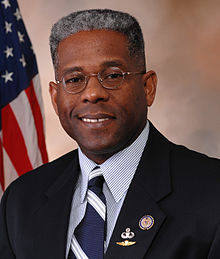Texas v. Pennsylvania
[7][8][9] The Supreme Court issued orders on December 11, dismissing the case on the basis that Texas lacked standing under Article III of the Constitution to challenge the results of the election held by another state.
[15] The case was filed on December 8, 2020, directly with the Supreme Court as it holds original jurisdiction over disputes between states.
It claimed that Georgia, Michigan, Pennsylvania and Wisconsin violated the Constitution by changing their election procedures to limit the spread of COVID-19.
[23] The case was filed on the same day as the "safe harbor" threshold, beyond which Congress must accept certified results from states ahead of the Electoral College's official vote on December 14, 2020.
[18][16] The suit alleged that the four states "ignor[ed] statutory requirements as to how [mail-in ballots] were received, evaluated and counted".
[24] It further argued that electoral processes in the four defendant states "suffered from significant and unconstitutional irregularities", and therefore that it was not clear who "legitimately won the 2020 election".
[35] Trump's brief was filed by Chapman University School of Law professor John C. Eastman, who in August 2020 authored an article published in Newsweek questioning Kamala Harris's eligibility for the position of vice president.
[37] Over 120 Republican members of the House of Representatives filed an amicus brief in support of the suit, including leader Kevin McCarthy and his deputy Steve Scalise.
[42] Later on December 10, attorneys general of six states that had already responded in an amicus brief, Arkansas, Utah, Louisiana, Missouri, Mississippi and South Carolina, petitioned to the Supreme Court to let them join Texas as a plaintiff in the case.
[9] Another Harvard Law professor, Noah Feldman, characterized the lawsuit as a coup attempt by Republicans to overturn the results of the election.
[52] Legal experts also did not expect the Supreme Court to certify the case, given its reluctance to hear post-election challenges.
On the same day as Texas's filing, the Court refused to hear arguments in another post-election challenge, Kelly v. Pennsylvania, without any dissents.
[22][53] The defendants also argued that the legal principle of laches, which may bar an action if it is filed too late, is grounds for dismissing Texas's claim.
On December 10, he tweeted "the Supreme Court has a chance to save our Country from the greatest Election abuse in the history of the United States.
... Now that the Biden Administration will be a scandal plagued mess for years to come, it is much easier for the Supreme Court of the United States to follow the Constitution and do what everybody knows has to be done.
"[4] Republican senators David Perdue and Kelly Loeffler, both involved in close runoff races in Georgia, voiced support for the suit.
[65] Republican members of the Senate, on the other hand, were much less likely to speak in favor of the suit, reflecting their different temperaments and political imperatives.
[66][49][24] Democratic Michigan attorney general Dana Nessel criticized the suit, labelling it a "publicity stunt ... beneath the dignity" of the Texas attorney general office and saying "[t]he erosion of confidence in our democratic system isn't attributable to the good people of Michigan, Wisconsin, Georgia[,] or Pennsylvania but rather to partisan officials, like Mr. Paxton, who place loyalty to a person over loyalty to their country.
[67] Former Federal Elections Commissioner Hans von Spakovsky said, "By almost any measure, this is the legal equivalent of a Hail Mary pass.
[73] Texas solicitor general Kyle Hawkins, who normally would speak on behalf of the state in matters before the Supreme Court, was not listed on the suit.
[43] The lawsuit included a declaration from economist Charles Cicchetti, who claimed that his statistical analysis showed that there was a less than one-in-one-quadrillion chance of Biden's having won any of the states in question.
[77] At The Washington Post, Philip Bump said that the analysis in the lawsuit was "utterly ridiculous", noting that the 2016 results could not be extrapolated to 2020, because Biden was more popular than Clinton and because voters had become more polarized.
Bump also wrote that vote-counting was not "homogeneous", with the "blue shift" phenomenon being entirely expected due to mail-in ballots favoring Biden.
"[86][87] White House press secretary Kayleigh McEnany echoed the notion that the case was never given a chance, saying the justices "hid behind procedure ...
[89] The Biden campaign said of the ruling: "The Supreme Court has decisively and speedily rejected the latest of Donald Trump and his allies' attacks on the democratic process.
"[90] House speaker Nancy Pelosi issued a statement that "The Court has rightly dismissed out of hand the extreme, unlawful and undemocratic GOP lawsuit to overturn the will of millions of American voters" and admonished that "Republicans must once and for all end their election subversion—immediately."
"[91][92] New Jersey representative Bill Pascrell, citing section three of the 14th Amendment, called for Pelosi to not seat Republicans who signed the amicus curiae brief supporting the suit.



